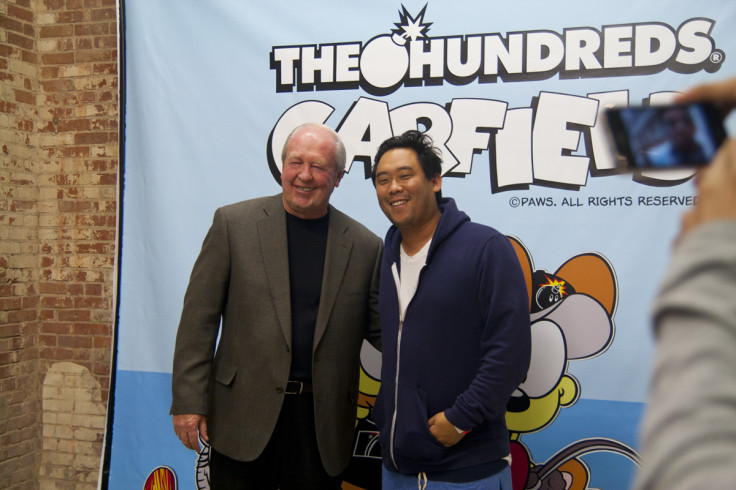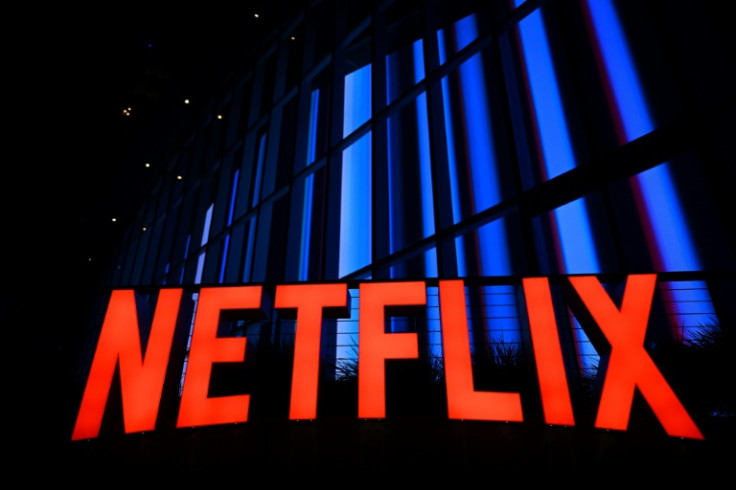Netflix Star David Choe Allegedly Described Raping A Massage Therapist, Twitter Removes Video

KEY POINTS
- A video of "Beef" star David Choe seemingly describing sexually assaulting a massage therapist went viral
- Choe later claimed it was a "fabrication" and denied raping anyone
- Choe requested to have the resurfaced video removed from Twitter
"Beef" star David Choe is under fire after a 2014 podcast video clip of him seemingly describing sexually assaulting a woman and claiming to be a "successful rapist" resurfaced and went viral on Twitter.
Journalist Aura Bogado, who posted the video last week amid the success of the A24-led Netflix show, tweeted Sunday that Choe filed a copyright claim and got the podcast footage taken down.
In the clip from "DVDASA," a podcast Choe co-hosted with Asa Akira, the 46-year-old artist and actor shared a story about "jerking off" during a massage and forcing the massage therapist to perform oral sex on him.
After the podcast episode was released, Choe denied being a "rapist" and said that his comments were a "fabrication" and a case of "bad storytelling."
"I never thought I'd wake up one late afternoon and hear myself called a rapist. It sucks. Especially because I am not one. I am not a rapist. I hate rapists, I think rapists should be raped and murdered," Choe said in a 2014 statement obtained by BuzzFeed News.
He continued, "If I am guilty of anything, it's bad storytelling in the style of douche. Just like many of my paintings are often misinterpreted, the same goes [for] my show. The main objective of all of my podcasts is to challenge and provoke my friends and the co-stars on the show."
The graffiti artist-turned-actor also claimed that the podcast wasn't a "representation" of his reality nor a "place to come for reliable information" about him or his life, before apologizing to viewers who believed that the story was true.
But it seemed that Choe was unhappy about the video resurfacing on social media as he filed a Digital Millennium Copyright Act (DMCA) takedown notice asking Twitter to remove Burgado's post due to a copyright violation, leading to the deletion of the video.
"David Choe wrote to Twitter to get the video I posted of him talking about the woman he says he raped taken down on copyright grounds," Bogado tweeted, attaching a screenshot of an email from the platform's support team.
"He claims his *nonprofit* owns the copyright to the video of him talking about the alleged rape," the journalist added.
The email identified the David Young Choe Foundation and its founder, Choe, as the copyright owner.
David Choe wrote to Twitter to get the video I posted of him talking about the woman he says he raped taken down on copyright grounds.
— Aura Bogado (@aurabogado) April 16, 2023
He claims his *nonprofit* owns the copyright to the video of him talking about the alleged rape. pic.twitter.com/6IaSXTOeQ1
The journalist also posted the video on TikTok. It is unclear if a takedown notice had been filed for it, though the sound had already been removed due to the graphic language.
Choe has yet to release an official statement regarding the footage resurfacing on social media. However, Twitter users slammed him over his story, regardless of whether it was a joke or not, and are still reposting the video despite the alleged copyright violation.
"It being a 'joke' or 'fake' doesn't make it better. It's just as repugnant to THINK these things and allow your words to contribute to the violence against women that is lived with daily, and to continue to normalize misogyny as a f—king joke. It's still dangerous," one user wrote.
Another commented, "With all the talk about 'Beef,' we need to talk about David Choe and the obscene, unchecked misogynoir that conditions his behavior and casting. I watched his interview, and the story he details [about] raping a Black massage therapist is horrific and violent, to say the least."
"'Beef' deserves better than to be tanked by David Choe's history of rape normalization. But what he boasted about was grotesque, and if he did it—he claims now he didn't—it was criminal. And the actions that have been taken since then to stonewall have only made things worse," a third user wrote.
Choe is a Los Angeles-based artist, popularly known for painting murals for the Meta (formerly known as Facebook) offices. He now stars in "Beef" as Isaac, alongside Steven Yeun and Ali Wong.

© Copyright IBTimes 2025. All rights reserved.






















